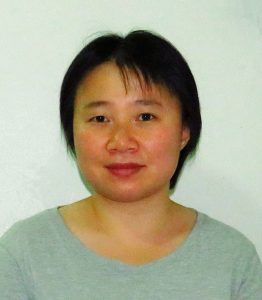 “The evolution of xenobiotic pesticide-degrading enzymes in the metallo-β-lactamase superfamily” by Gloria Yang, Dr. Tokuriki Lab, University of British Columbia.
“The evolution of xenobiotic pesticide-degrading enzymes in the metallo-β-lactamase superfamily” by Gloria Yang, Dr. Tokuriki Lab, University of British Columbia.
Abstract: New protein functions often evolve through the recruitment and optimization of latent promiscuous activities. How do mutations alter the molecular architecture to change function? The overarching goal of my thesis is to provide answers to this question, utilizing a novel xenobiotic organophosphate hydrolase (OPH) activity as model. The overarching goal of my research is to provide answers to this question, utilizing a novel xenobiotic organophosphate hydrolase (OPH) activity as model. Ancestral sequence reconstruction conducted on a recently evolved OPH enzyme, methyl-parathion hydrolase (MPH), revealed that the OPH activity emerged from an ancestral lactonase enzyme via five mutations that enlarged the active site to increase complementarity to the new substrate. Subsequent generation of the adaptive fitness landscapes formed by these five mutations uncovered a prevalence of epistatic interactions that constrained the number of accessible evolutionary trajectories. Furthermore, the topologies of the landscapes drastically change in response to subtle differences in substrate substituents. Overall, the results of this research contribute to our understanding of enzyme evolution, and will help to better protein engineering and design in the future.
Monday, December 14, 2020 at 2:30 pm. Join by Zoom.
Hosted by Dr. Nobuhiko Tokuriki